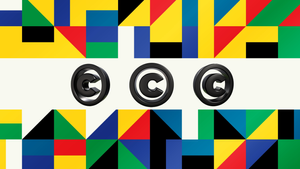The government of South Africa has pushed back at criticism made by the US copyright industries over a plan to introduce the principle of fair use into South African copyright law, possibly because it’s aware that introducing fair use in that way might make the country more attractive to AI companies.
The US-based International Intellectual Property Alliance is concerned that South Africa’s plan will result in too many limitations on copyright within the country, which could weaken copyright protection and be unfairly exploited by various users of content, not least AI companies.
However, the South African government insists that the proposed changes will ensure that its copyright regime can “keep up with innovation” and the “changing digital environment”.
The IIPA - which counts the Recording Industry Association Of America as a member - criticised the proposed changes to South African copyright law in a submission to the US Trade Representative. The changes have been years in the making and will, among other things, amend provisions around copyright exceptions, which are scenarios where people can make use of copyright protected works without getting permission from a copyright owner.
Currently, like with UK copyright law, the South African copyright system sets out a number of specific scenarios where a copyright exception applies.
The proposed changes would introduce a fair use principle, similar to that which exists in US copyright law. This provides a much more wide-ranging exception that basically allows a third party to make use of copyright protected works without permission providing the use is fair. Courts then apply various criteria to ascertain what is 'fair'.
It's somewhat ironic that American copyright owners are objecting to South Africa importing a principle of American copyright law. Although copyright owners often find themselves battling what they consider to be invalid claims of fair use through the US courts.
And the fair use defence is at the centre of most of the lawsuits filed by copyright owning companies against AI businesses that have used existing content to train their generative AI models without getting permission. The tech firms argue that AI training is ‘fair use’.
That alone is a reason for US copyright owners to object to the fair use principle popping up in more countries. Although, the IIPA argues that the fair use principle being considered in South Africa is actually wider in remit, and therefore more problematic, than the principle in the US.
In its recent submission to the USTR it said the changes would “create an overbroad amalgamation of copyright exceptions that includes an expansive 'fair use' rubric - not in line with the US doctrine - appended to a large number of extremely open-ended new exceptions and limitations to copyright protection”.
The South African government has now responded to the IIPA’s criticism in its own submission to the USTR. It insists that the changes being proposed in South Africa recognise “that copyright regimes across the world are slowly moving away from the closed-list system to an open system, which will keep up with innovation and the changing digital environment”.
The way South African law currently deals with copyright exceptions, it adds, is “outdated, limited and static and does not address the digital world”. Whereas a fair use system will be “progressive, dynamic and future proof and ‘digital-friendly’”.
It then argues that fair use has worked well back in the US. “It is a fact that fair use was coded in the US Copyright Act of 1976 and has not had to be amended, as it applies to new technologies as they arise”, it says. “Other countries have also adopted fair use in their copyright laws and more countries are considering it, because it is ‘future-proof’ and benefits users and producers of information and knowledge”.
The IIPA wants the USTR to put pressure on the South African government regarding its copyright reforms through ongoing trade talks.
That would be an objective of the US copyright industries at any time, but avoiding the introduction of new copyright exceptions in foreign jurisdictions is a particular priority at the moment in the context of AI. It remains to be seen if the USTR can force a late-in-the-day rethink in South Africa, but it’s not looking likely.

